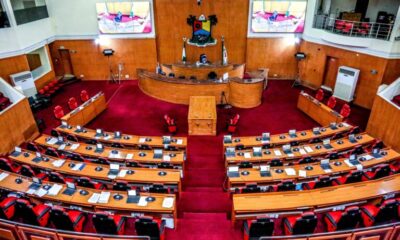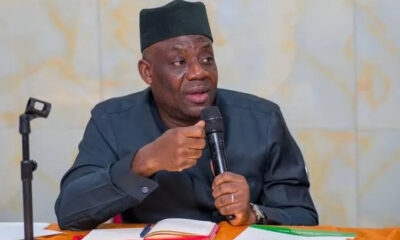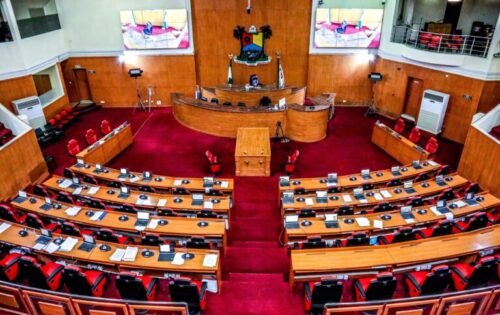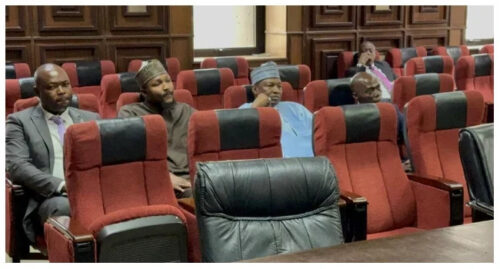The Committee of Vice Chancellors (CVC) of Federal Universities has appealed to the Nigerian government to rethink its decision on its strict adherence to the ‘No Work, No Pay’ policy over the lingering conflicts with the university workers’ unions.
The body said the policy may cause more damage than good to the universities.
The Nigerian government has vowed not to pay the university workers for the duration their strike lasted, saying the decision is in compliance with the labor laws.
But the workers’ unions, and particularly the Academic Staff Union of Universities (ASUU), have described the policy as unfair and unjust.
ASUU said teaching is the simplest task of its members, saying it only constitutes about 10 percent of promotion criteria. The union said while on strike, its members still work on research and community development projects.
VCs plead
The vice-chancellors said the ‘No Work, No Pay’ policy would create more damage to the system and leave students bearing the brunt of the dispute.
The CVC also cautioned the government against a forceful reopening of universities, saying it would be counterproductive.
This is contained in a communique released by the Chairperson of the vice-chancellors’ committee, Sulayman Abdulkareem, a professor and Vice-Chancellor, University of Ilorin, after an emergency meeting of the committee on Tuesday.
The committee had convened n emergency meeting after a meeting with the Minister of Education, Adamu Adamu, and the Executive Secretary of the National Universities Commission (NUC), Abubakar Abdulrasheed, on the same day.
The communique reads in part; “The position of the Government on this item (No Work, No Pay) will create more damage to the system because the students would bear the brunt of ASUU’s response.
“Universities, because of the peculiar nature of their operations, must cover the scheme of work as provided by the curriculum.
“CVC appeals to the Federal Government to reconsider its stand and pay the withheld salaries on compassionate grounds, and especially in the interest of Nigerian students. Government’s acceptance of this appeal would no doubt facilitate a quick resolution of the impasse.”
Reopening
The vice-chancellors noted that the universities were formally shut down and “the power to open or shut down a university is vested only in the Senate of each university.”
It said: “Any attempt to keep students on campus without their being fully engaged in academic and other activities may have disastrous consequences.”
They also appealed to the government to provide special reopening grants for the universities to renovate rusty facilities as a result of their abandonment for the duration of the strike that has lasted up to seven months.
“Many special equipment especially in our laboratories will need to be recalibrated, physical facilities need to be renovated and electricity and water bills are outstanding. Given that many of us have not received their overheads, the Government will need to support the universities with special grants for re-opening,” it added.
On salary adjustment
The vice-chancellors, who emphasized the need for the upward review of academics’ salary, noted that the current template by the Income, Salaries, and Wages Commission and the Integrated Personnel Payroll Information System (IPPIS) have “depleted the salaries of academics and vice-chancellors to an all-time low.”
It, therefore, recommended that the government revisits the recommendations in the Nimi Briggs-led committee’s report “as their figures represent a better offer that will stem the tide of unrest in the Universities.”
Autonomy, UTAS
CVC also advocated full autonomy for universities “such that each university governing council can decide the salaries of their employees by following a national minimum wage to be agreed by all stakeholders.”
The Minister of Education had announced that IPPIS and the preferred payment platforms by university workers are being tested and integrated by a technical committee and that the report would be made public soon.
On this, the committee said the updated platform must recognize the peculiarities of the university system as pointed out by all the university-based unions.
Revitalization fund, EAA
The CVC, however, appealed to ASUU to exercise patience for the government to include the promised N170 billion for revitalization in the 2023 budget for the payment to be disbursed in the first quarter of the year.
The CVC advised the government to source for funds to settle the N50 billion for earned academic allowances (EAA) as a sign of goodwill.
It said; “The Federal Government should consider this demand, source for funds, and pay this N50 billion now as a sign of goodwill and keeping faith with the 2020 MOA,” it said.
“ASUU should reconsider its position and reciprocate this gesture to suspend the strike”
Rethinking funding
Meanwhile, the vice-chancellors bemoaned the embargo placed on employment in federal universities, saying it has served as a bottleneck in its efforts to replenish existing vacancies and “the already bad staffing situation.”
According to them, the universities have in the past five months lost a substantial number of Nigerian academics who have resigned to take up other jobs or moved to other countries in search of better rewarding opportunities.
CVC also said there is the need to completely review the federal universities and their structures.
The statement said: “By 2023, it will be 50 years since academics first went on strike in Nigeria. It is evident that by the time we resolve this dispute, we will need to return to the table to rethink the philosophy of university education in Nigeria, its funding and governance structure, and the role each strategic stakeholder or partner will play.
“The public universities have in the past five months lost a substantial number of Nigerian academics who have resigned from their appointments and are taking on jobs outside academia or seeking more financially rewarding opportunities in other climes.
“Furthermore, the embargo on employment and other bureaucratic bottlenecks which universities are made to pass through in their process of recruitment to replenish existing vacancies is not helping the already bad staffing situation”


 BUSINESS4 days ago
BUSINESS4 days ago
 ENTERTAINMENT2 days ago
ENTERTAINMENT2 days ago
 ENTERTAINMENT2 days ago
ENTERTAINMENT2 days ago
 BIG STORY1 day ago
BIG STORY1 day ago
 BUSINESS3 days ago
BUSINESS3 days ago
 BIG STORY2 days ago
BIG STORY2 days ago
 BIG STORY1 day ago
BIG STORY1 day ago
 BIG STORY17 hours ago
BIG STORY17 hours ago






















